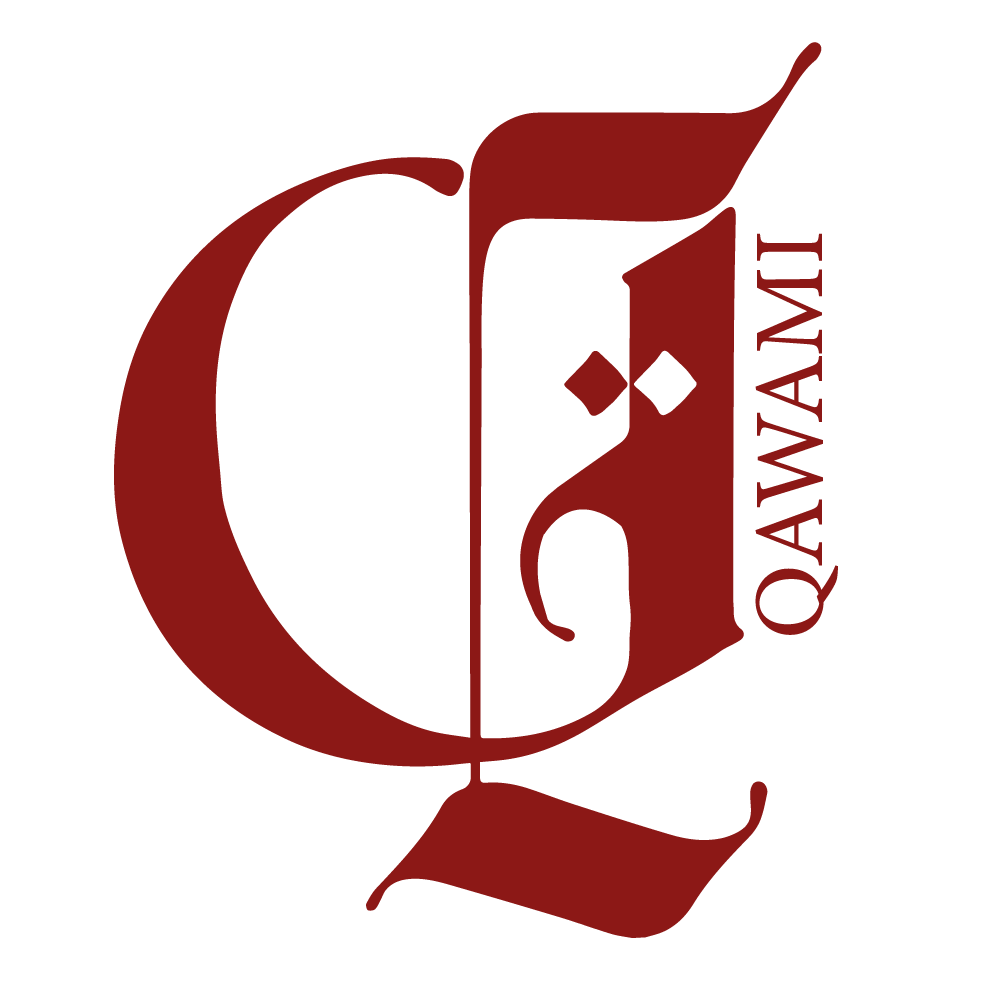Only one book of comparative law deals comprehensively with Asian and African countries (Menski, 2006) and there is no general study on the diversity of family laws in Asia and Africa (Sezgin, 2013 compares Israel, Lebanon and India; Tobich, 2015 considers only few countries, including some countries with a unified personal-status law). The legal literature about personal-status laws has focused on issues of conflicts of laws in private international law (Benattar, 1967; Elgeddawy, 1971) and does not provide an analysis of the configuration of countries with an internal plurality of personal-status laws. More generally, there is no real dialogue between the specialists of Muslim countries, India, Israel, Western or Eastern Africa (“African law” or "Islamic law" being often considered as singular units, Sacco, 2009). The issue therefore has to be examined afresh, based on new insights in legal theory, legal history and comparative law. Only a multi-disciplinary approach, what we call a socio-historical jurisprudence, will be able to grasp the different levels involved by this diversity and to link them with the concepts of equality and discrimination.
The concept of personal-status law is a historical creation of modern States, often under colonial or quasi-colonial pressures, that have integrated this diversity of communitarian rules into their positive laws. This history is linked to judicial practices in the Ottoman Empire (the so-called millet system) and in Egypt. The other historical source of the notion lies in the policy of European colonial powers in Asia and Africa. Contrary to the first colonization wave in America, that transplanted European laws without any real consideration for indigenous customs, the second wave of colonization in Asia, then in Africa, led Portuguese, Dutch, English and French colonizers to recognize to non-Christian populations the keeping of their own family rules.
Ottoman rulers institutionalized the dhimmi system protecting Jewish and Christian communities (considered as “People of the Book”) enforced since the Umayyad and Abbasid Caliphates (beginning with the so-called “Pact of Umar” for the Christians of Jerusalem). The Ottoman millet system, granting separate jurisdictions to Jews and Christians, was officially organized between the 16th (Baude, 1982 about the myth of a foundation in the 15th century) and the 18th century (Masters, 2004). It was consolidated between 1839 and 1861. During the Tanzimat (reforms), civil equality among all Ottoman subjects was affirmed (Hatt-ı Hümâyûn. 1856). This latter decree established mixed courts for litigations between Muslims and non-Muslims. However, it did not define the competence of millet courts. For this reason, doubts remain about the application of personal statuses by these courts. Timur Kuran (Kuran, 2012) has shown that, in many cases, religious minorities in the Ottoman Empire preferred to use the qâdî courts and that there were some forms of “Islamization” of Christian and Jewish statuses. One generally considers that the capitulations treaties (which are said to have started with the treaty between the Ottoman sultan and the King of France in 1536) have granted Christian foreign merchants the privilege to be judged by their consuls on the basis of their national laws, but this privilege concerned criminal and civil cases between Christians (van den Boogert, 2005; Tait Slys 2014). There is a need to clarify the link between the different courts and the notion of “personal status” through new historical researches about the legal rules applied to non-Muslims in the Ottoman Empire. Concerning Muslims, the creation of “modern” courts (Nizamiye Courts) in the 1860s created a competition with Sharia (Seriat) courts which kept the jurisdiction on personal matters and religious endowments (Rubin, 2011) until their abolition in 1924.
In Egypt, before the establishment of the Protectorate, the 1875-1883 judicial reforms consisted in creating mixed codes and courts for the private relationships between foreigners and Egyptians, as well as native codes and courts for criminal and civil cases between Egyptians. But personal-status matters (marriage, filiation, divorce, inheritance) remained within the jurisdiction of Sharia courts for Muslims and community courts for non-Muslims (Wood, 2016). Through Qadri Pasha’s draft code of Hanafi personal status (1875), the concept of “personal status” (al-ahwal al-shakhsiyya) as opposed to “real status” or civil rules was introduced in Muslim law (Boghdadi, 1937). That distinction between real and personal statuses finds its origins in Napoleonic civil law and definitely not in classical Islamic doctrine. In other words, the expression used to designate what is often considered as the last bastion of so-called Islamic law does not plunge its roots in Islamic fiqh. If Qadri Pasha’s personal status code was not promulgated and its authority is “still an open question” (Wood, 2016), the concept of “personal-status” was adopted by most countries in the Arab world to designate family law, whether or not they have a plurality of personal status laws. Many other Asian or African countries also use it as a synonym for family law.
Concerning Western colonization, the recognition of personal-status laws began in Goa and in Ceylon with the Portuguese (1597 Convention of Malwana), then the Dutch and the British (Cooray 2003, p. 4-5), in Bengal and in the rest of British Indies (1772 Regulations of Warren Hastings about inheritance, marriage, caste and religious cases judged according to the Quran or to the Sastras with respect to Mohammedans and Gentoos), in the French comptoirs de l’Inde (1769 ruling confirmed in 1819, Gentoos and Muslims judged according to their morals and customs, with a special court called Tribunal de la chaudrie, Bonnan, 1999), in Dutch-ruled Indonesia (since the establishment of a dual jurisdiction in 1747, Lukito 2013, p. 27) or in Algeria from the beginning of the French conquest in 1830 (Convention with the dey in which the French promised to respect religion, properties and wives of inhabitants). Using civil-law-transplanted legal categories that distinguished between personal and real statuses, local rulers and European colonizers created a separation in indigenous normativities between rules that were abolished (in criminal or civil matters) and those that were maintained (family law), as if family law was something isolated in the Muslim, Hindu or African normativities (Buskens and Dupret, 2014). Indonesia is a very significant instance of this process of positivization of “personal status”. What is called Adatrecht is a composite made of two words: adat, which comes from Arabic and means usages, habits or practices, and recht, which is the Dutch word for law. Adatrecht was the term coined by Cornelius van Vollenhoven (1981) to describe Indonesian customs as collected and compiled by Dutch scholars and their local assistants, and made into positive law through their West-inspired organization in rationalistic codes. From 1882 onwards, Dutch colonizers also recognized religious courts for Muslims, while inheritance cases were separated from personal status in 1937, to be judged (according to adat) in indigenous courts (Lukito, 2013, p. 35 and 99).
After decolonization, countries with a diversity of personal statuses chose generally to maintain this system and accepted to recognize particular family laws for their religious minorities, like Copts in Egypt, Muslims in India or Kenya, Jews in Morocco. Despite the recognition of the principle of equality before the law (with the possibility of judicial review: Bernard-Maugiron, 2004) and sometimes (as in India) the promise of a uniform Civil Code, none of the considered States has given up this system, even if (as in Pakistan for Hindus or in Morocco for Jews) the religious minority has become very tiny in comparison with the majority of the population, itself submitted to a kind of “common law”. In spite of the differences in content of the various personal-status laws, the adoption of constitutions guaranteeing equality between all citizens and the ratification of UN instruments prohibiting any discrimination based on religion did not have concrete consequences. For long, there were obstacles to mixed marriages and claims of individuals who did not want to be tied to their religious affiliation were denied by most of these countries in order to keep the equilibrium between communities.
Most constitutions and statutory laws of the Asian and African concerned countries do not give a definition of “personal-status law”. If one wants to study the issue of equality in Asian and African countries recognizing a plurality of personal-status laws, one needs a “stipulative” definition of such legal systems. Our starting point consists in the identification of legal orders containing a set of differentiated statuses (that is, different from the status(es) of other nationals) in family law, based on the belonging (or non-belonging) of a citizen to a religion-based community, acquired by birth or marriage, with or without the possibility of choice (Halpérin, 2019). Such a definition leads to the identification of 29 countries in Asia and Africa with a plurality of personal-status laws (Bahrain, Bangladesh, Cameroon, Egypt, Ethiopia, Gambia, Ghana, India, Indonesia, Iran, Iraq, Israel, Jordan, Kenya, Lebanon, Malaysia, Morocco, Nigeria, Pakistan, Philippines, Senegal, Sierra Leone, Singapore, South Sudan, Sudan, Sri Lanka, Syria, Tanzania, Thailand). The fact that all these countries include a Muslim community (as a majority or a minority) does not mean that Islamic law is the core problem of the plurality of family laws, but that the coexistence of Muslim and non-Muslim populations in a same country has been one of the reasons why a plurality of personal-status laws has been kept until today.
In 6 of these 29 countries, recent developments clearly show that new claims for equality and non-discrimination are challenging the traditional system recognizing the pluralism of personal-status laws:
In Egypt, in November 2019, a Christian woman managed to get a court ruling confirming her and her brothers’ right to rule out the implementation of the 1943 inheritance law and to divide the property left by her late father equally among themselves. The 1943 inheritance law codified Islamic inheritance rules that favor male heir who can inherit double the share of females. The personal-status laws of non-Muslim communities may, however, in, some areas be more stringent that those of Muslims, such as in matters of divorce where the Coptic Orthodox personal status law was amended in 2008 to limit the grounds for divorce, resulting in an increase in the cases of conversion to Islam of Copts seeking the application of the personal-status law for Muslims that allows divorce on several grounds (Bernard-Maugiron 2008 and 2011).
Since 2013, in Lebanon, some couples belonging to different religious communities have managed to get married before notaries according to the rules of the French Civil Code (as applied during the French mandate), instead of having to fly abroad to contract a civil marriage and (as in Israel) a rising trend is calling for the recognition of civil marriage in Lebanese law (Hanna, 2017). The massive demonstrations against the corruption of political life since October 2019 was also witness of the development of a women movement asking for equality between genders and more secularized laws.
In India, the Supreme Court has banned in August 2017 the triple talaq (Muslim verbal repudiation of the wife by the husband) as discriminatory and contrary to the principle of equality. The long sentence of the Supreme Court is a vivid testimony of the opposition between those who see personal-status laws as fundamental rights enshrined in the constitution (the minority opinion in this case) and those who are in favour of modifying part of these laws. The 2019 statutory law making the triple talaq an offence is now challenged before the courts (Agnes, 2019), in a political context characterized by a violent hostility towards Muslims (Jaffrelot, 2019).
In Indonesia the Constitutional Court, established in 2003, rejected a challenge against the regulation of polygamy in the marriage law (2007), as well as petitions to
increase the minimal age of marriage for girls and to legitimate the interfaith marriages (2015). The 2013 Civil Administration Law ordered that one of the six religions (Muslim, Protestant, Catholic, Buddhist, Hindu, Confucian) be mentioned in the population registry but this rule was overruled in November 2017 by the Constitutional Court, weakening one of the bases of the plurality of personal-status laws that are also questioned by those wanting to extend the domain of Islamic law (The Jakarta Post, November 7, 2017).
In Cameroon, discussions about the plurality of personal-status laws have been reopened since 2004, within the frame of debates about the possibility of adopting a unified Civil Code (Atangana-Malongue, 2006). Since a 2010 ruling of the Supreme Court (Michel Zouhair Fadoul v. Omaïs Kassim) qualifying judges to exercise constitutional review, litigation regarding the principle of equality has been growing.
In Tanzania, the activist lawyer Rebeca Gyumi succeeded in 2016 in having the provision of the 1971 Marriage Act that discriminated between girls and boys in child marriages repealed. The High Court rejected arguments based on the respect of the pluralism of personal laws (Rebeca Z. Gyumi vs. Attorney General, July 8, 2016).
Such developments show that these six countries are divided between proponents and opponents to the pluralism of personal-status laws. They also highlight the leading role grassroots movements, including women associations and human rights NGOs, can play in these debates in favour of gender and religious equality and non-discrimination in general (including domestic violence, legal status of homosexuality or abortion, which overcome the distinction between personal-status laws).
ELIPS proposes to combine historical studies and detailed surveys and to look at claims based on the principle of equality among citizens from different communities. We will make investigations about the opinions of religious leaders and grassroots movements, including women associations (N’Diaye 2016) and human rights NGOs, and analyse their impact (or their absence of impact in some countries) on statute law and case law regarding personal status. There is a real need to investigate ordinary as well as higher-courts cases in order to understand how these norms are applied in practice and not only how they are laid down in legal texts, and how courts, at all levels, have considered the plurality of personal statuses in the light of the principle of equality. Only a socio-historical jurisprudence, combining legal history, legal anthropology and legal theory can provide an added value to traditional comparative studies. It is such an approach, as a milestone for a new field of research, that ELIPS would like to adopt.


